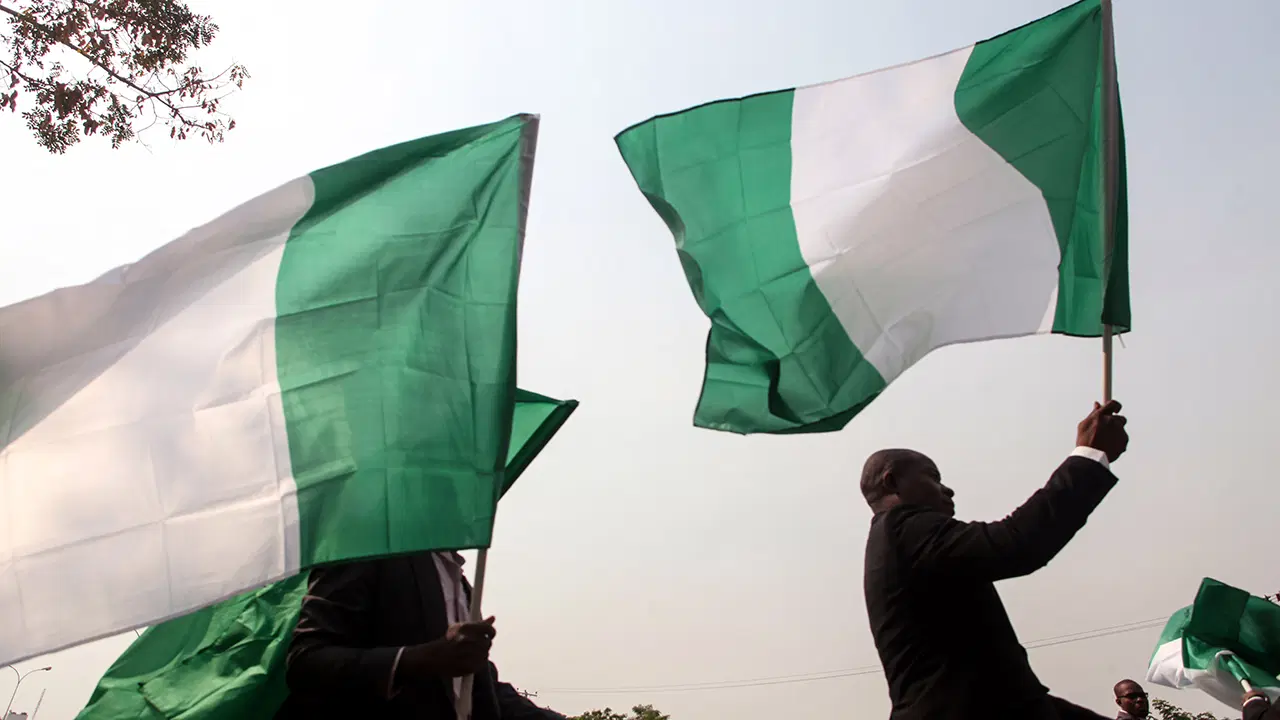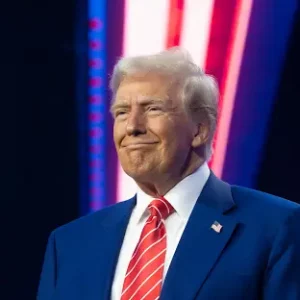On August 29, 1970 the New York Times published a report by its Nigeria correspondent, William Borders. It was about the life in exile of the Biafran secessionist leader, Chukwuemeka Odumegwu-Ojukwu. Seven months earlier, in January 1970, Ojukwu had arrived in Abidjan, Ivory Coast, aboard a Fokker Friendship Air Gabon plane from Libreville.
Ivory Coast, along with Gabon, Tanzania and Zambia, had been one of the only four African nations to grant diplomatic recognition to Biafra.
Borders’ report noted that Ojukwu had been accompanied by a large assortment of relatives, select officials of the Biafran High Command and cadres of his lost cause, but that “much of the rebel leader’s entourage (had) drifted away.” The historian Kenneth Dike had taken up a professorship at Harvard; but military commander Alexander Madiebo and diplomat Peter Ochigbo remained in Ivory Coast.

President Felix Houphouet-Boigny declared that ‘Ojukwu, although entirely free in his movements, will have no political activity in Ivory Coast.’ The Ivorian government, or its President actually, gave Ojukwu the run of an ornate estate in Yamoussoukro. In principle Ojukwu kept faith with the terms of his asylum, granting no press interviews and making no declarations. Unwilling to resign himself to table tennis and reminiscence, however, he maintained discreet contact with allies in Nigeria, Ghana and elsewhere, helped by a select group of cadres and close associates.
One of the close associates who remained by the leader’s side during his twelve-year exile, his private secretary Kanayo Esinulo, has just published a memoir about that fateful period, Ojukwu: Exile, Diplomacy and Survival.
Esinulo’s memoir has all the virtues of history as written by an eyewitness who was a participant as well as a victim. His is a shrewd, scrupulous narrative, eschewing speculation and innuendo in favour of straightforward reportage and matter-of-fact statement. Relying on the reader’s foreknowledge to fill in the historical preamble, Esinulo’s story focuses unwaveringly on the drama of life in exile, not on rehearsing the horrors of Biafra. Much has been written already about that tumultuous 30-month episode; and more will undoubtedly be written, but Esinulo’s book is certain to elicit, in the stream of an informed reader’s consciousness, concentric circles of thought. Like all traumatic historical events, Biafra has accreted about itself, in a process which continues apace, a body of historical records, academic studies, novelistic fiction and outright apocrypha.
For a single individual to do justice to this subject in one volume would require great fortitude, the cerebral heft of a committee and a certain omniscience. Biafra was a Nigerian theatre of war, but it was also a theatre of Western realpolitik. On January 14, 1970, when Ojukwu was still in Libreville, the CIA sent a classified telegram to the Nixon White House reporting on the travel arrangements of Christopher Onyekwelu, C. C. Mojekwu and Jacques Foccart, the latter the French Secretary-General for African and Malagasy Affairs. All three men were flying from Europe to meet Ojukwu in Libreville.
Although the French had been major suppliers of humanitarian relief and light war materiel to Biafra, the CIA telegram quotes Jean Mauricheau-Beaupre, Foccart’s deputy, as admitting that “France supported Biafra because of the oil and ERAP, but not the Ibo revolution.” When President Nixon was visiting Europe in 1969, the State Department briefing paper he received advised him to make clear to Prime Minister Harold Wilson that a Federal victory over the Biafrans would be ‘in (America’s) best interest,’ although the official US position had been one of studied neutrality. During a three-hour long parliamentary debate on the supply of arms to Nigeria, held on June 12, 1968, the British MP Sir John Eden decried the perfidy of Her Majesty’s Government organising peace talks between the warring factions while supplying arms to the Nigerian government.
The British government was neither willing to countenance the amputation of Nigeria, as a geopolitical prize, nor risk any injury to the petroleum interests of Shell-BP. The USSR supplied a steady stream of MIG and Ilyushin bomber jets to the Federal side, hoping to make a strategic impression on this portion of the chequerboard. (When Aleksandr Romanov, Soviet Ambassador in Lagos, ended his six-year tour of duty in October 1970, General Gowon presented him with the Commander of the Order of the Niger). Felix Houphouet-Boigny, Ojukwu’s host and the parental deity of Ivory Coast, was a fervent anti-communist. In Ivory Coast Ojukwu’s consigliere was the Frenchman, Colonel Fournier.
The air was thick with intrigue. Ojukwu’s great friend Frederick Forsyth resigned from the BBC in 1968 when he discovered that the Foreign Office and the BBC actually expected him to file boosterish reports in favour of the Federal side. His bosses insisted that his reports from Biafra were not merely sympathetic but outright fictional.
How much closer does Esinulo’s book bring us to knowing the real Ojukwu? Various accounts of Ojukwu’s fateful life have been written, including by the man himself, but it is arguable that they offer us no more than the clothes and buttons of the man which Twain said constituted the unfinishable sketch known as biography.
The US Ambassador in Lagos, Elbert Mathews, in an airgram to the State Department in 1968, described Ojukwu’s “panache, quick intelligence, and…actor’s voice and fluency.’ Jerome Udoji, the first African Assistant District Officer during British rule and Chief Secretary to the Government under Eastern Premier Michael Okpara, chafed under Ojukwu’s brusqueness and condescension when the thirty-three year old Lt-Colonel assumed office as Governor of the Eastern State in 1966. Udoji remarks in his memoirs (Under Three Masters) that Ojukwu had inherited none of his father’s ‘character’, or ‘down-to-earth lifestyle’ or ‘matter-of-fact‘ attitude.
During that parliamentary debate in June 1968, the MP John Cordle had referred snidely to “the machinations of the public relations firms which have been retained by Colonel Ojukwu at fantastic expense,” obviously referring to the Geneva-based agency PR agency, Markpress.
The war effort and his own Oxford-honed flair for the manufacturing of consent had impressed on Ojukwu the importance of a well-oiled press machine. Although the Biafran war was clearly a military campaign, the vast asymmetry between the two sides meant that for Ojukwu the war effort was as much for foreign public opinion as for domestic territory.
Although Esinulo’s memoir is ostensibly about a consequential political chapter in the history of Nigeria, it is also, at a subliminal level, a story about how individual agency and ambition can be overwhelmed and effaced by service to a cause, or to the charismatic embodiment of that cause.
Mustafa Kemal, the charismatic Ataturk, told his Ottoman troops during the Battle of Gallipoli in 1915: “I am not ordering you to fight; I am ordering you to die.” Esinulo was never asked to die, but he did have to fight for his freedom and his life when, on a covert mission from Ivory Coast on behalf of Ojukwu in 1973, he is betrayed in Lagos, arrested and detained without trial at the Kirikiri Maximum Security Prison, Nigeria’s premier hellhole. He develops a chronic hip fracture.
Henchmen of the regime accuse Esinulo of being a courier for Ojukwu, and of being a vendor of propaganda against Gowon. The two-year fight for his release is led by the redoubtable Gani Fawehinmi, the book’s dedicatee. Esinulo’s cause was also taken up by Amnesty International, as well as Olu Onagoruwa, Wole Soyinka, Tai Solarin and Ojukwu himself.
Readers who, like me, have a taste for non-fictional cloak-and-dagger narratives will find much to savour in Esinulo’s book. After his fortuitous release from Kirikiri Prison, Esinulo is spirited away from Lagos to Cotonou in a pre-dawn operation led by an unnamed Frenchman in a car with diplomatic plates, whom we can surmise was part of the long-armed network of European agents and fixers that had coalesced around Ojukwu in his Biafran heydey and in his Ivorian exile. Ojukwu is said to have relished his given name, ‘Emeka,’ but in exile he went by several secret aliases, known only to initiates like Esinulo, who would typically telephone to leave coded messages for Christophe Onikel or Dr Kofi.
Although Ojukwu was generous in arranging a scholarship for Esinulo to study at Erasmus University in The Hague, later on, when Esinulo is accepted to a Swedish university to study for a doctorate in sociology, Ojukwu vetoes the idea on the grounds that a far more important task is the one of ending his exile and returning to Nigeria.
The exile is haunted by visions of a return to his homeland, even if, as in the case of Ojukwu, he had violently renounced citizenship and belonging.
missang.oyongha@gmail.com
Stay ahead with the latest updates!
Join The Podium Media on WhatsApp for real-time news alerts, breaking stories, and exclusive content delivered straight to your phone. Don’t miss a headline — subscribe now!
Chat with Us on WhatsApp







